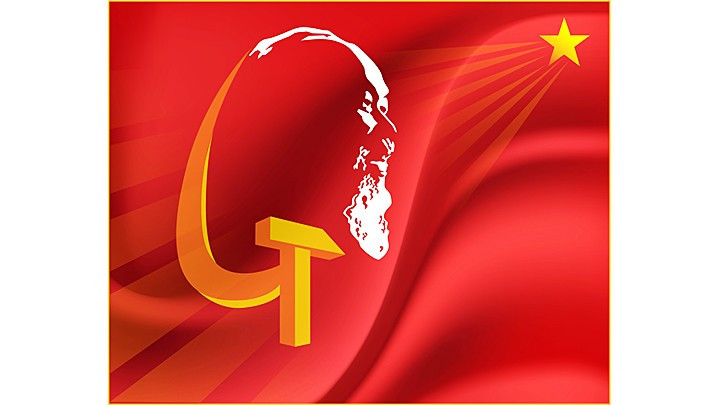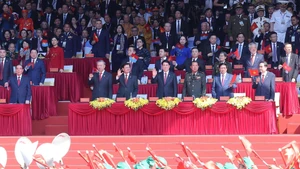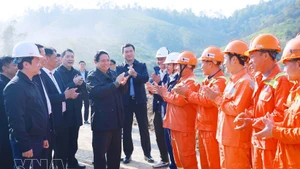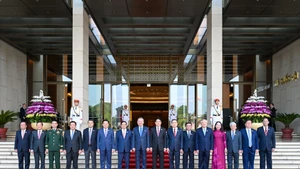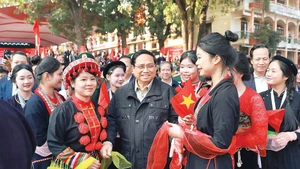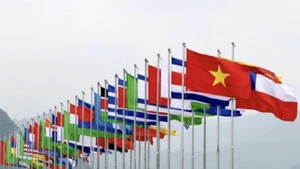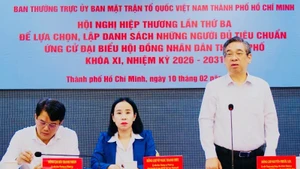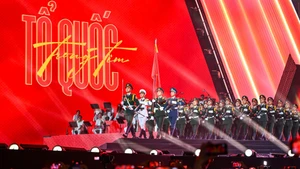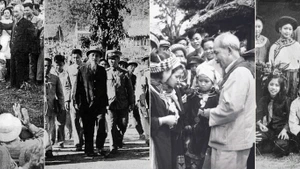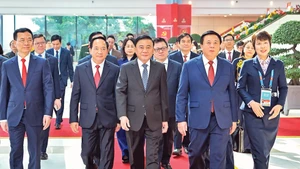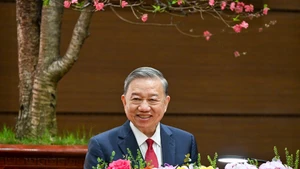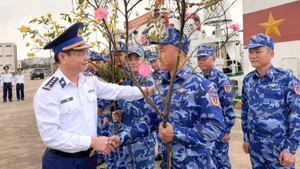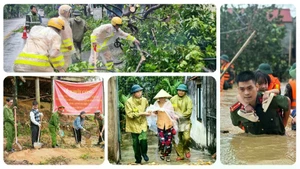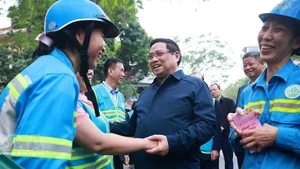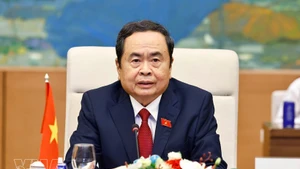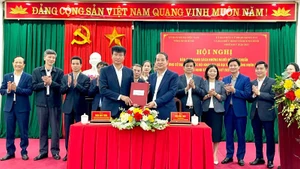More than half a century has passed, that truth is still the guiding light, the spiritual support, the ideological flag leading our nation firmly on the journey of building and defending the independent, self-reliant, powerful, and happy Vietnamese Fatherland.
A truth from the heart and the journey of the nation
The idea of “Nothing is more precious than independence and freedom” was not formed from theory or books, but crystallised from the painful and heroic reality of the Vietnamese people, as well as from the 30-year journey of searching for a way to save the country of a young man named Nguyen Van Ba, followed by Nguyen Ai Quoc who later became Ho Chi Minh.
From as early as 1919, in his petition to the Versailles Conference, Nguyen Ai Quoc spoke up for freedom and equality for the Vietnamese people. Later, during his journey through many colonial and imperialist countries, he realised that there is no other way than the path of national liberation so that the people can have the right to control their own destiny. Ho Chi Minh once wrote: “Freedom for my compatriots, independence for my Fatherland, this is all I want, this is all I understand.” That saying is the core of the ideology that later crystallised into the truth "Nothing is more precious than independence and freedom".
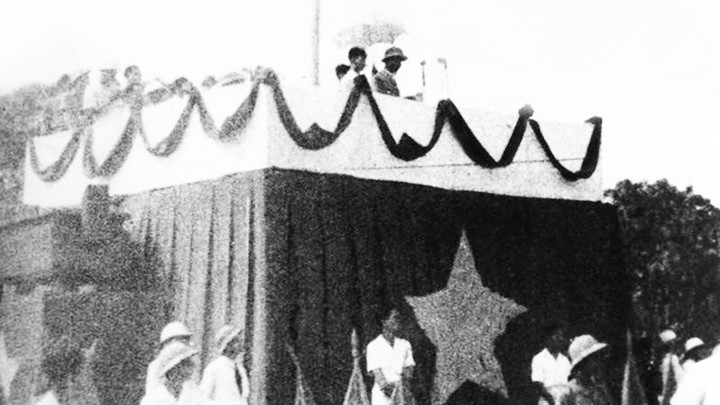 |
| On September 2, 1945, at the historic Ba Dinh Square, President Ho Chi Minh read the Declaration of Independence, giving birth to the Democratic Republic of Vietnam. Photo archive. |
The crystallisation of patriotism and the spirit of national liberation
The idea "Nothing is more precious than independence and freedom" is the crystallisation of Vietnamese patriotism and the spirit of national liberation, between the steadfastness of the national tradition and the aspiration of modern man to be master. Ho Chi Minh did not oppose national independence with individual freedom, on the contrary, he considered them two inseparable aspects. "If the country is independent but the people do not enjoy happiness and freedom, then independence is meaningless" — a timeless declaration, placing man at the centre of all values.
That shows that independence and freedom are not only national ideals, but also sacred human rights. It is the right to pursue happiness, to live with dignity, to contribute to society in conditions of equality, without oppression and dependence. In Ho Chi Minh's thought, the concept of "freedom" is not abstract but very specific: "Everyone has food to eat, clothes to wear, everyone can study." It is freedom of livelihood, freedom of knowledge, freedom to develop oneself in an independent country, protected by law and guaranteed by justice.
The torch of the Vietnamese revolution
That ideology has become the compass for the entire Vietnamese people to rise up and gain power in the August Revolution, fighting in two resistance wars against France and the US.
Thanks to that ideological torch, our people have mobilised the combined strength of the great national unity bloc, turning a poor, occupied nation into a nation that defeated two colonial and imperialist powers. That ideology has given strength to mothers who sent their children to war, to soldiers who sacrificed their lives for the Fatherland, to generations of young people who followed each other on the road with the strong belief that independence and freedom are the ultimate way of life.
We cannot forget the glorious pages of history that Ho Chi Minh's ideology has illuminated. Under the flag of independence and freedom, we have won national sovereignty, unified the country and brought the country into a period of innovation and international integration with increasingly strong position and power.
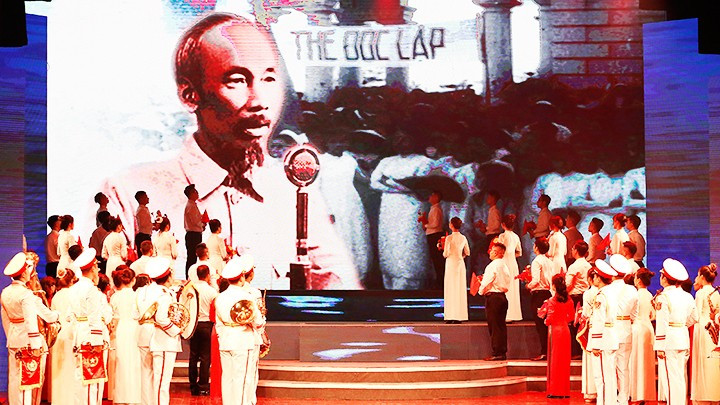 |
| Uncle Ho's ideology "Nothing is more precious than independence and freedom" is the guiding light in the journey to build a prosperous and happy Vietnam. Photo: LE MINH |
The contemporary value of an eternal ideology
Today, when the country is no longer at war, independence and freedom are not only territorial sovereignty or political institutions, but also the ability to master development, the ability to be self-reliant in economics, technology, culture, and life values. It is the right of the people to start a business, to raise their voice in policy making, to access information, knowledge and opportunities to rise up.
In the context of globalisation, independence and freedom are not only domestic principles but also foreign affairs capabilities. It is the right to choose a suitable development path, to protect national interests without falling into dependence or being imposed. Ho Chi Minh's ideology therefore does not only belong to the past, it is also a compass for today and the future.
For the young generation, “Nothing is more precious than independence and freedom” is not only a symbolic slogan, but also a reminder of civic responsibility and the desire to contribute. It is the motivation to commit, be creative, and rise up for an independent, strong, and humane country. We are able to live in peace, study, establish ourselves, and build our careers thanks to the solid foundation of independence and freedom that many generations of our ancestors have exchanged with their blood and bones. In particular, that idea is being vividly continued in the direction of General Secretary To Lam when he emphasised that: “We must break through institutions and laws so that the country can rise up.” Because institutions are not only a tool for management and administration, but also a space to promote the people's mastery — the most concrete embodiment of freedom in a modern rule of law state. According to the General Secretary, legal innovation is not only aimed at perfecting the system of norms, but also at “liberating all productive forces, unleashing all resources, promoting all potentials and strengths of the country, and taking advantage of all development opportunities”, that is, making the spirit of independence and autonomy spread into every area of national life.
The idea of “Nothing is more precious than independence and freedom” therefore does not stop at traditional values but is being renewed in the era of digital transformation, deep integration and global competition. It is the freedom to create, the independence in development thinking, the aspiration to build an institution truly “of the people, by the people and for the people”.
Forever with time
The idea of “Nothing is more precious than independence and freedom” of President Ho Chi Minh is the crystallisation of human conscience, the sacred declaration of a nation that was once enslaved but never subdued. It is not only a historical value, but also a guiding light for the present and the future. In the journey to build a prosperous, happy, democratic, fair and civilised Vietnam, that ideology remains an immortal spiritual support.
We can modernise the country with technology and investment capital, but if we lose the spirit of independence, patriotism and the desire for freedom, we will lose the soul of the nation. On the contrary, if we know how to inherit and develop the ideology of "Nothing is more precious than independence and freedom" in the new context. As General Secretary To Lam emphasised: We must turn institutions into driving forces, laws into pedestals, then the Vietnamese nation will not only survive, but also rise strongly on the world map, just as Ho Chi Minh's iron will once conveyed in the Declaration of Independence in 1945: "The entire Vietnamese people are determined to devote all their spirit and strength, their lives and property to maintain that freedom and independence."
The saying “Nothing is more precious than independence and freedom” is not only engraved in political and legal documents but also deeply engraved in the hearts of every Vietnamese person as a sacred oath.
